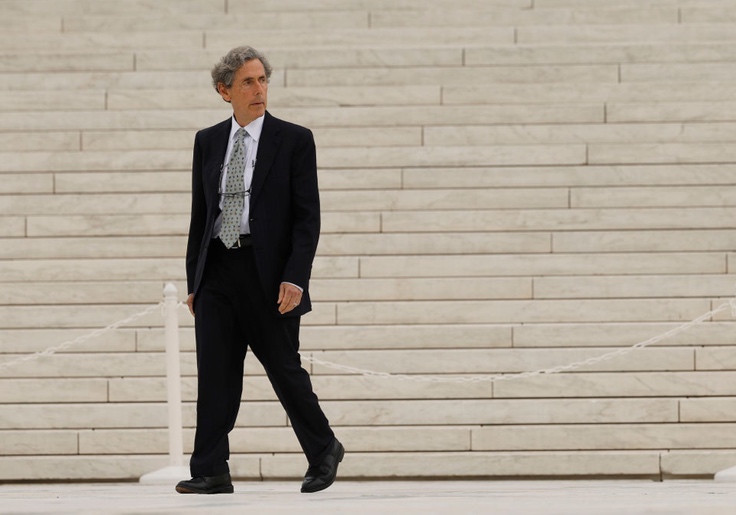The law firm Morrison & Foerster has quietly opened its diversity fellowship to white applicants in the wake of a discrimination lawsuit by Edward Blum, the activist behind the Supreme Court case that outlawed affirmative action in college admissions.
Before the lawsuit, the Keith Wetmore Fellowship for Excellence, Diversity, and Inclusion only considered members of "underrepresented" groups, "including racial/ethnic minority groups and members of the LGBTQ+ community," according to a document describing the fellowship on the firm’s website.
But eight days after Blum’s lawsuit was filed, on Aug. 30, Morrison & Foerster scrubbed the criteria of any references to race or sexual orientation. The fellowship is now open to all law students with a "demonstrated commitment to promoting diversity," the new criteria state, and who "bring a diverse perspective to the firm."
The capitulation suggests that Morrison & Foerster, one of the country’s top law firms, is unwilling to go through the hassle of defending its race-based initiatives now that the legal winds have shifted. A day after the High Court’s decision, Morrison advised clients to take stock of their diversity programs and eliminate "unlawful preferences" like "quotas or set asides." But the firm did not take its own advice until Blum’s group, the American Alliance for Equal Rights, sued it and another law firm, Perkins Coie, over their diversity fellowships, which pay as much as $50,000 and fast-track fellows for full-time positions.
Perkins Coie has vowed to defend its fellowship, which is reserved for "students of color, students who identify as LGBTQ+, and students with disabilities." Morrison & Foerster did not respond to a request for comment.
Blum’s lawsuits allege that both programs violate the Civil Rights Act of 1866, which bans racial discrimination in contracting. That law has been at the center of civil rights complaints against many companies, including Amazon, Starbucks, and Pfizer, that limit grants and fellowships to members of minority groups.
Though the Supreme Court’s decision did not address private contracts directly, it did put corporations on the defensive and, in the eyes of many experts, indicate a willingness to strike down race-based programs outside education.
The result has been an uptick in legal threats from all corners of the conservative establishment: Republican attorneys general, who warned Fortune 100 companies in July against unlawful quotas; Arkansas senator Tom Cotton (R.), who put 51 law firms on notice about their own diversity programs; and America First Legal, the public interest law firm founded by former Donald Trump adviser Stephen Miller, which sent letters to 200 law schools demanding an end to racial preferences in admissions, faculty hiring, and law reviews.
Faced with this looming lawfare, some institutions have thrown in the towel preemptively. Columbia Law School announced in August that it would require 90-second video statements from all applicants—raising concerns that the school was trying to circumvent the affirmative action ban—only to abandon the policy hours later after being contacted by the Washington Free Beacon. A couple universities also dropped race-based scholarships within a week of the decision, saying its logic extended beyond admissions.
Law firms have played a role in legitimizing such policies. Covington & Burling, one of the best white collar firms in Washington, D.C., has blessed numerous race-conscious programs through its "civil rights" audit practice, whose clients include Starbucks, Citigroup, BlackRock, and Verizon. Wilmerhale, Skadden Arps, and Paul Weiss offer similar audits.
"It’s been surreal to see law firms encouraging clients to pursue these policies," said Jonathan Berry, the managing partner at Boyden Gray & Associates, "often in what seems like open defiance of the Civil Rights Act."
